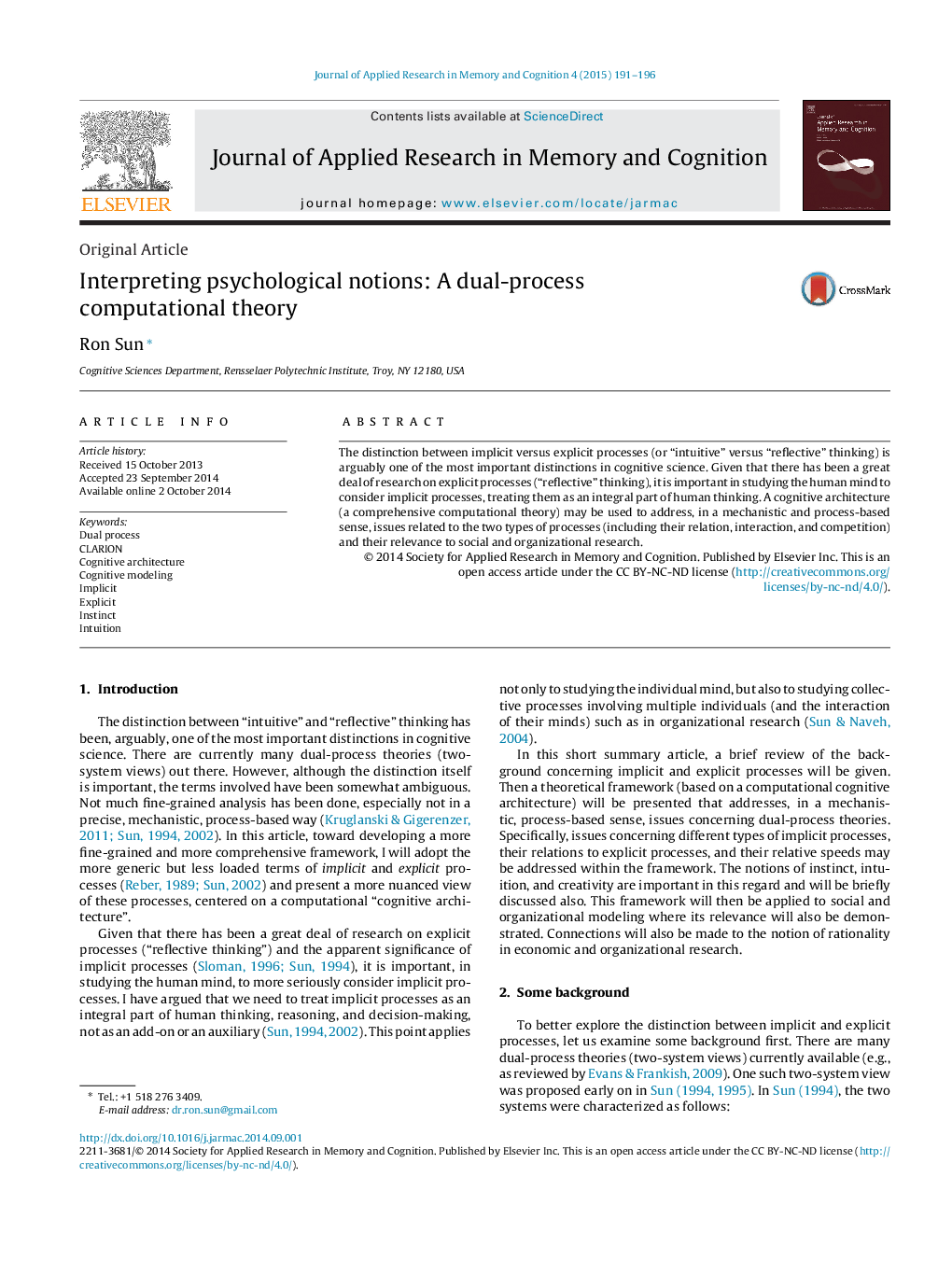| Article ID | Journal | Published Year | Pages | File Type |
|---|---|---|---|---|
| 881613 | Journal of Applied Research in Memory and Cognition | 2015 | 6 Pages |
Abstract
The distinction between implicit versus explicit processes (or “intuitive” versus “reflective” thinking) is arguably one of the most important distinctions in cognitive science. Given that there has been a great deal of research on explicit processes (“reflective” thinking), it is important in studying the human mind to consider implicit processes, treating them as an integral part of human thinking. A cognitive architecture (a comprehensive computational theory) may be used to address, in a mechanistic and process-based sense, issues related to the two types of processes (including their relation, interaction, and competition) and their relevance to social and organizational research.
Keywords
Related Topics
Social Sciences and Humanities
Psychology
Applied Psychology
Authors
Ron Sun,
